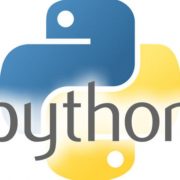The Problem with explainable-AI
A very nice and interesting article by Rudina SESERI in the recent TechCrunch blog (read the orginal blog entry below): at first Rudina points out that the main problem is in data; and yes, indeed, data should always be the first consideration. We consider it a big problem that successful ML approaches (e.g. the mentioned deep learning, our PhD students can tell you a thing or two about it 😉 greatly benefit from big data (the bigger the better) with many training sets; However, it certain domain, e.g. in the health domain we sometimes are confronted with a small number of data sets or rare events, where we suffer of insufficient training samples [1]. This calls for more research towards how we can learn from little data (zero-shot learning), similar as we humans do: Rudina does not need to show her children 10 million samples of a dog and a cat, so that her children can safely discriminate a dog from a cat. However, what I miss in this article is something different, the word trust. Can we trust our machine learning results? [2] Whilst, for sure we do not need to explain everything all the time, we need possibilities to make machine decisions transparent on demand and to check if something could be plausible. Consequently, Explainable AI can be very important to foster trust in machine learning specifically and artificial intelligence generally.
[1] https://link.springer.com/article/10.1007/s40708-016-0042-6










